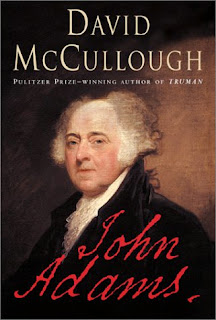 Today, we’re featuring an interview with Gabrielle de Montserrat, heroine of Mistress of the Revolution.
Today, we’re featuring an interview with Gabrielle de Montserrat, heroine of Mistress of the Revolution.Madame, please tell us a bit about your childhood and upbringing?
I grew up in the French countryside, raised until the age of six by my wet-nurse, and then by the nuns of a convent school. I did not return to my family until I was eleven. I had no memories of it, so it took me a little time and effort to get used to it. But I did.
Describe for us a typical day in the life of a French noblewoman.
I will tell you about a typical day in my life just before the Revolution. I would wake up rather late (I must confess that I have never been much of a morning person) and ring for Manon, my maid, to bring me my breakfast of hot chocolate and croissants. Then I would choose my dress for the day, order the carriage and call on my dear friend the Duchess. If the weather was fair, we would go for a ride on the Champs-Elysées, or maybe a stroll in the gardens of the Palais-Royal. Then I would take my friend home, and return to my lodgings, where I would ready myself for the evening. The Count de Villers would then take me to the theatre, the Opera, sometimes followed by a dinner with friends or a ball. Do not be surprised to hear me sigh, dear Madame Yarde. Those were indeed the days of the sweetness of living.
You met Pierre-Andre Coffinhal when you were fifteen. What were your first impressions of him?
It was so very rude of him to stare at me in that fashion, while I was innocently enjoying my bath in the river. But I believe at the same time I was rather amused by him. He made me laugh, and there is no better way to a girl’s heart. To mine at least.
Despite your love for Pierre-Andre, duty to your family forced you to marry the Baron de Peyre. Your life with him was difficult, but was there any moment where you were perfectly happy?
My greatest moment of happiness during my first marriage was the birth of my first child, Aimée. Was it perfect happiness? I cannot say, and maybe there is no such thing. But that moment when I held for the first time my beautiful little daughter in my arms came very close to it.
The Baron’s death changed everything for you and then, with your daughter Aimee, you journeyed to Paris and entered the court at Versailles. What were your first impressions of the French court and the royal family?
Truth be told, the etiquette appeared rather odd to the young provincial I was then. I will tell you this: I was terrified on the day was I was presented to Queen Marie-Antoinette. She was such an imposing, truly regal figure. And of course I managed to make a fool of myself that day. But we all survive those little wounds to our pride, do we not?
Tell us about some of the requirements of protocol at court and how you adjusted to them.
I believe the most ridiculous was the way we ladies had to walk without raising our feet off those terribly slippery parquet floors in Versailles. And having to squeeze my giant hoopskirts among the crowd of other ladies in the Queen’s bedchamber was not the most comfortable feeling in the world either. And that rather unbecoming rush for the best place at the Chapel! How did I adjust to that? Like any other lady of the Court, I suppose: I had no choice.
You enjoyed a period of happiness with the Count de Villiers, particularly during your time with him in Normandy. How did your initial views of him change and how do you like to remember him now?
I have forgiven him at last. These days I often think of him with great sadness. He could be such a brilliant, charming man, and perhaps in his own way he loved me.
The Revolution brought such a drastic change to the country and imperiled your life. Do you believe it was inevitable?
I am not sure this is a question I, or anyone else, can answer. Maybe if the King had been a more skillful politician, if war had not been declared… then who knows?
Your reunion with Pierre-Andre during the bloodiest days of the Revolution
must have been a shock, as was his latter death. What do you believe is the legacy he and fellow revolutionaries left to the people of France?
The status of women, of the peasants, the courts, and the legal system were changed forever, and in my opinion for the better. But so many died…
If there were a motto or phrase you might choose to sums up your life, what would it be?
I survived, and never betrayed anyone.
Thanks again for speaking with us.
Merci, dear Madame Yarde! It was an honour and a pleasure chatting with you.
To learn more about Gabrielle de Montserrat's world, please also visit Catherine Delors' blog Versailles and more. We'll feature an excerpt from Mistress of the Revolution next, so be sure to leave your comments at the blog to win a copy of the novel, now in paperback!







